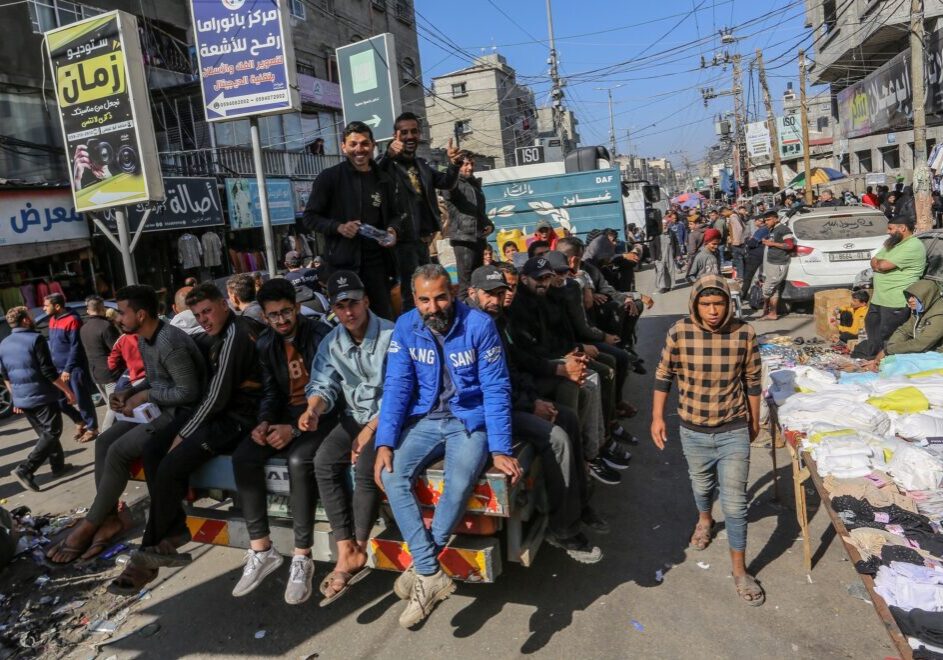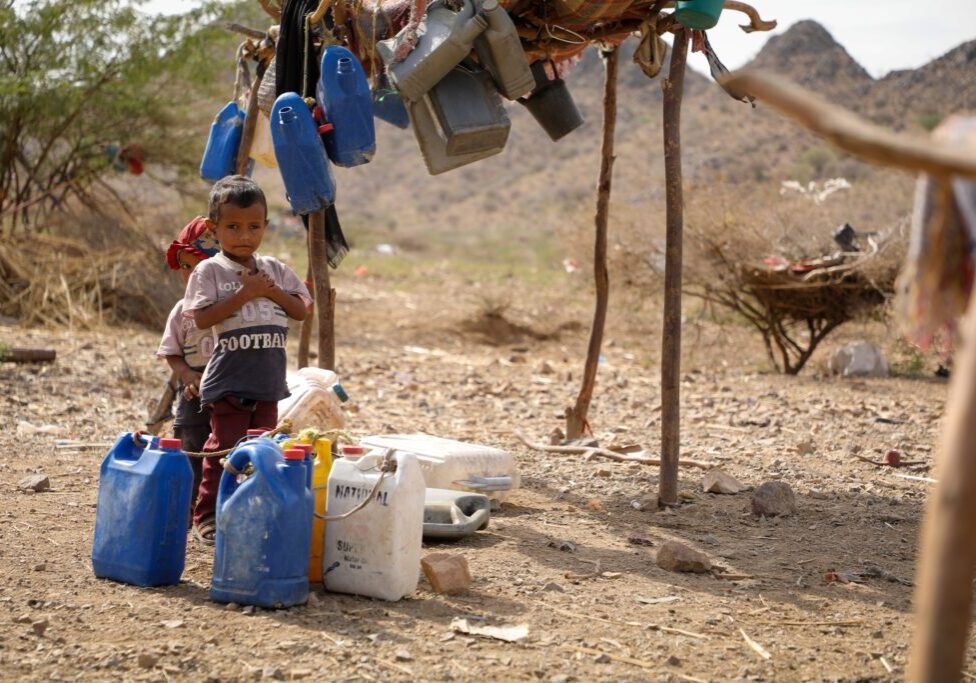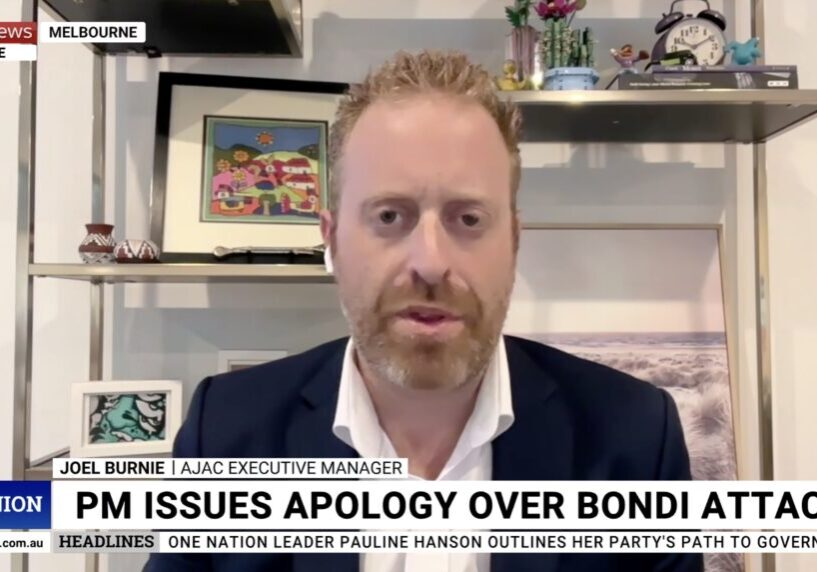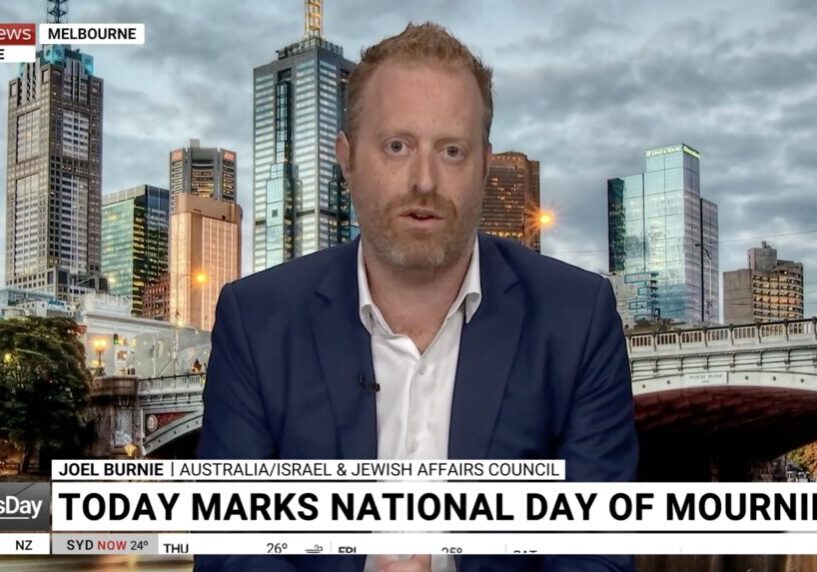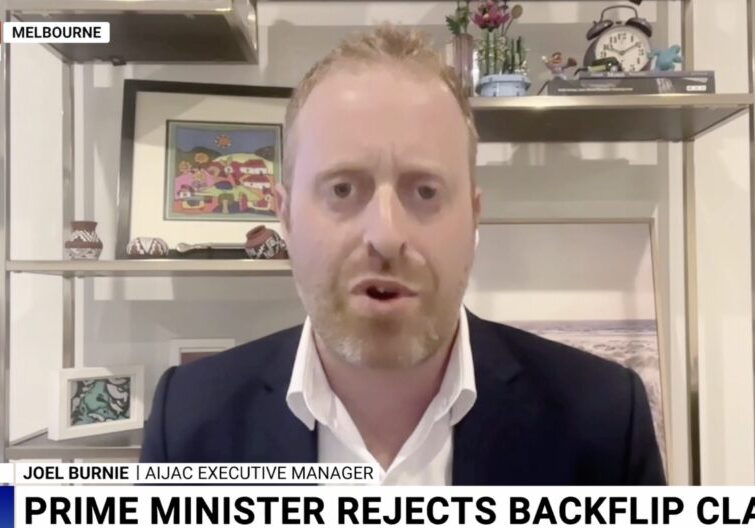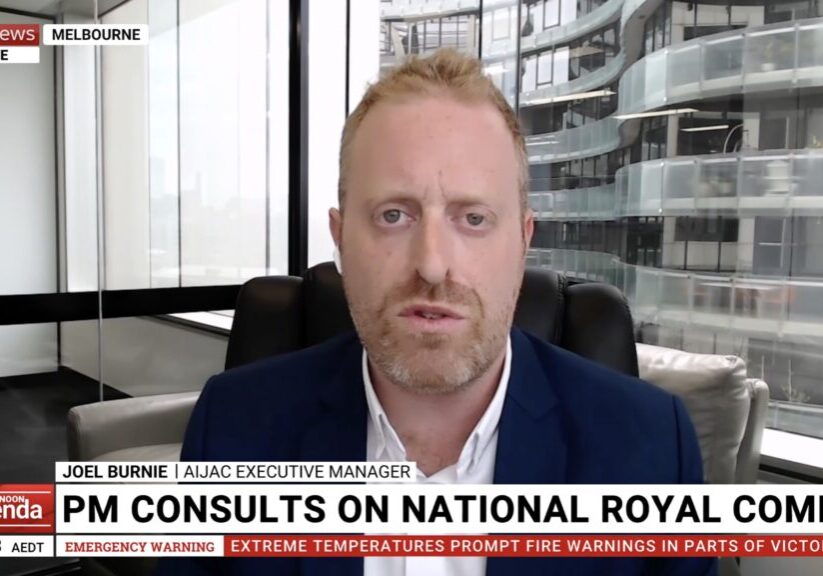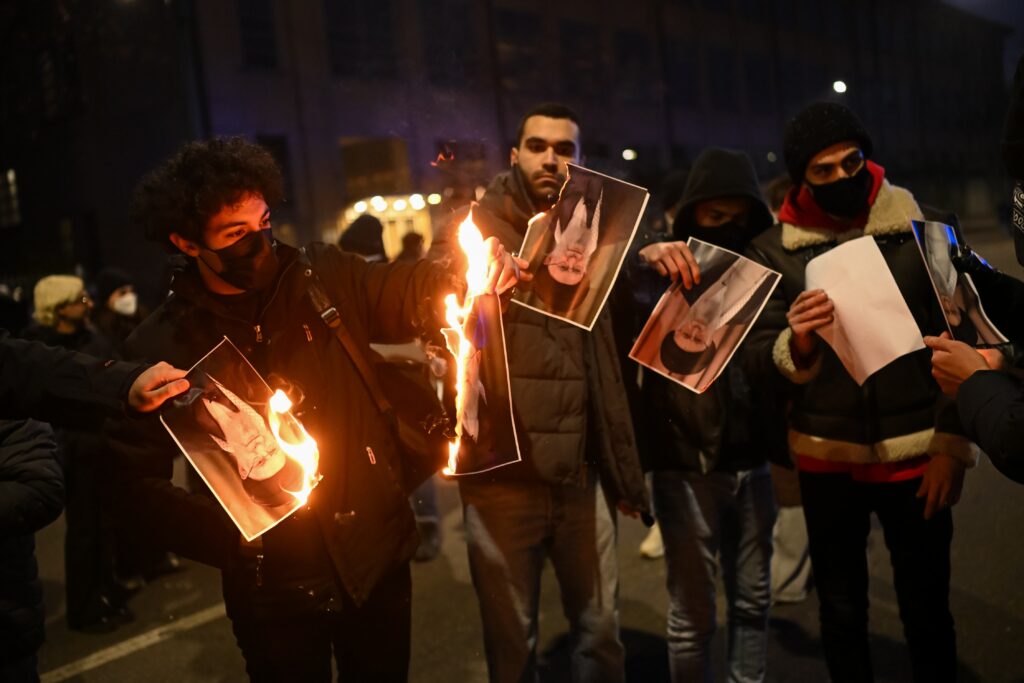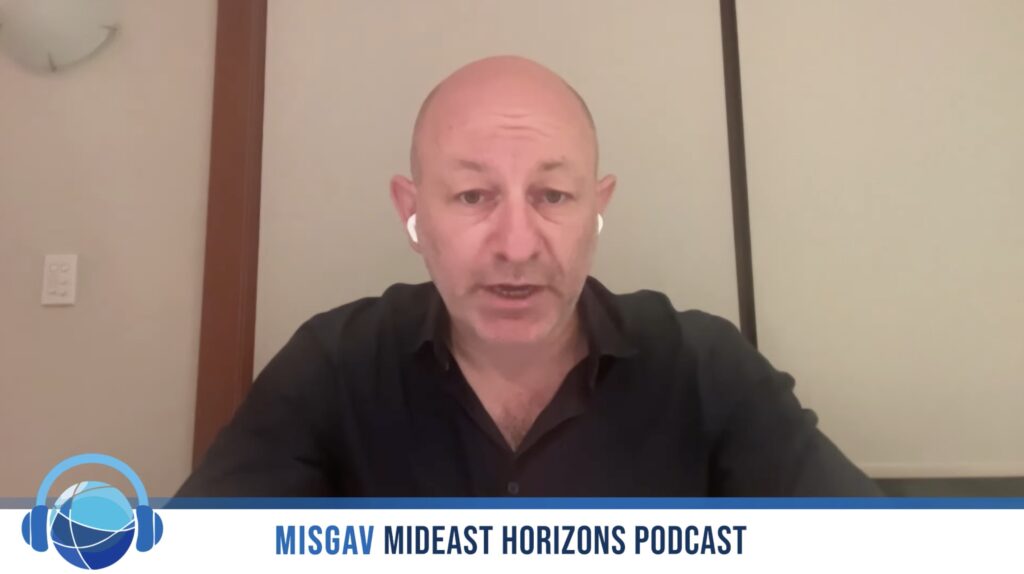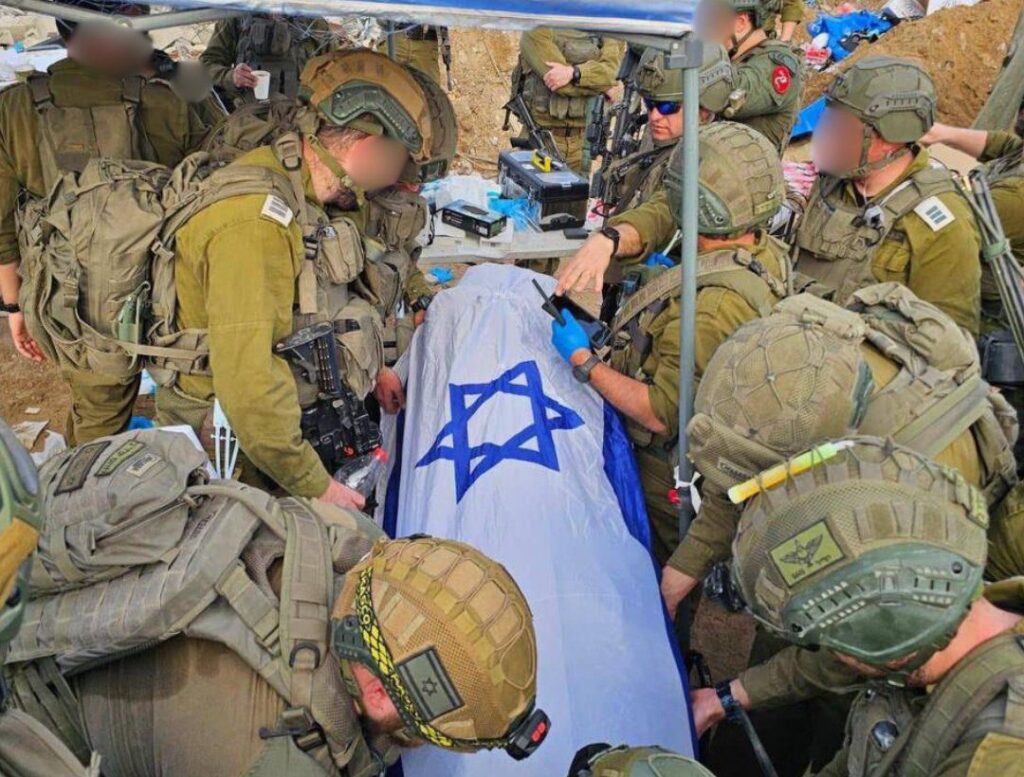FRESH AIR
War Update: Operation Rising Lion – Soroka Hospital struck
June 19, 2025 | Ahron Shapiro

Today’s AIJAC Iran war update once again brings you rare and exclusive interviews, fresh analysis and commentary from Hebrew Israeli media.
Today’s update includes:
- N12’s report on the reactions to Iran’s targeting of Beersheva’s Soroka Hospital, and the miraculous decision that saved many lives there
- According to Walla’s military correspondent Amir Bohbut, Iran was believed to have achieved some success penetrating Israel’s missile defences this morning by firing a salve of up to 30 missiles at once.
- In an interview for the Israeli station 103FM, Maj. Gen. Maj. Gen. (Res.) Yaakov Amidror, former head of Israel’s National Security Council, discusses the goals and progress of the current Israeli military campaign against Iran.
- N12’s Yogev Carmel tells the heartwarming story of how residents of the northern and southern kibbutzim – once evacuees themselves – are now returning the favour and taking in evacuees from Israel’s centre.
“A Great Miracle”: The Directive at Soroka Hospital That Saved Many Lives
The surgical department at the hospital was directly hit – but in a decision made yesterday, it was evacuated • Magen David Adom Director-General Eli Bin: “Last night in a management meeting it was decided to further reduce the hospital’s occupancy, particularly the department that was damaged” • Health Minister: “This is a war crime. Thanks to the immediate actions we took, a very severe disaster was averted” • Prime Minister: “We will exact the full price from the tyrants in Tehran”
Staff reporters
N12
June 19, 2025
Soroka Hospital was hit this morning (Thursday) in the missile barrage from Iran; however, part of the building that took the direct hit was evacuated only yesterday. Eli Bin, Director-General of Magen David Adom, said about the missile: “We must remember that what happened today is a great miracle at Soroka, because last night, in a meeting of the Supreme Authority for Hospitalization, headed by the Director-General of the Ministry of Health, it was ordered to further reduce occupancy at the hospital, particularly in the department that was damaged.”
Soroka’s spokesperson stated about the incident: “The hospital was hit in several areas. There was significant damage to the old surgical building. The emergency department is currently treating a number of lightly injured individuals. The Home Front Command is scanning all the buildings.”
Additionally, Soroka announced that the hospital is closed to activity except for life-saving operations.
After the direct hit on the hospital, Health Minister Uriel Buso expressed criticism of the Iranian regime: “The missile fired at the Soroka Medical Centre is an act of terror and a crossing of a red line. A war crime by the Iranian regime, carried out deliberately against innocent civilians and medical teams dedicated to saving lives.”
Professor Shlomi Kadosh, Director of the hospital, said: “During the day we will evacuate some of the hospitalized patients. We are treating only life-saving cases. The building was very badly damaged, and there is damage to additional buildings as a result of the blast wave. We have lightly injured individuals. We did not receive a specific warning; we knew what everyone else knew – but we acted according to a structured defence plan. The preparedness proved itself in terms of avoiding casualties.”
The Health Minister also referred to the actions taken by the Ministry of Health, which likely led to the saving of many civilian lives:
“The Ministry of Health prepared in advance, and thanks to the immediate actions we took, a very severe disaster was averted. I call on the public – please, continue to follow the instructions of the Home Front Command. It saves lives,” he said.
Prime Minister Netanyahu also addressed the incident: “This morning, Iran’s terror tyrants launched missiles toward Soroka Hospital in Be’er Sheva and toward the civilian population in central Israel. We will exact the full price from the tyrants in Tehran.”
Be’er Sheva Mayor Rubik Danilovich: “You always have to think of the unexpected, and we are prepared for every possible scenario. There was great luck. The city has strategic facilities, and therefore everyone is prepared. Self-discipline saved lives here. The emergency and rescue teams arrived quickly; the hospital is functioning in an extraordinary manner. Everyone is acting as they should. Everything is under control – there are no reports of unusually or severely injured. We prepared in advance for every possible scenario.”
The Iranian attack: A salvo of missiles were launched in addition to UAVs – aimed at overloading the defence systems
Amir Bohbot
Walla
July 19, 2025
The Iranian attack this morning (Thursday) included 25 [Some reports now say 30 – A.S.] missiles, combined with unmanned aerial vehicles, in order to overload the various radar and interceptor systems – according to assessments by security officials. The Iranian assault resulted in four impact zones and about 30 injured across all areas, four of them in serious condition.
“We were in the shelter and there was a boom. We smelled gas, went outside and saw ruins. Everything was destruction. You never imagine it until it happens. I ran up to grab the weapon and the dog quickly – that’s all I managed to take,” said Shimon, a resident of a building that was hit in Holon. “A missile fell into my house. It’s the first time in my life I’ve gone down to the shelter. It’s surreal,” the resident said.
“In the nuclear field we apparently achieved quite a bit”
103FM Israel (Radio)
July 19, 2025
Major General (Res.) Yaakov Amidror, former head of the National Security Council and senior fellow at the Jerusalem Institute for Strategy and Security, commented on the goals of the war.
Major General (Res.) Yaakov Amidror, former head of the National Security Council and senior fellow at the Jerusalem Institute for Strategy and Security, spoke with Nissim Mishal and Geula Even-Sa’ar about the goals of the war in Iran.
The conversation took place immediately after a heavy missile barrage that hit Soroka Hospital in Be’er Sheva, in Holon, and in Ramat Gan. The expert was asked whether this barrage marked a worrying shift in direction. He believes not: “There’s no drama and no difference in strategy,” Amidror emphasized. “The firing is related to capability, and the Iranians organized themselves better. We struck their command and control, their launching capability. The Iranians understood the problem and reorganized differently, and they managed to launch — according to reports — 20 missiles, but this is very far from the Iranian plan.”
According to him, “We targeted their nuclear infrastructure and their missile production infrastructure. In order to achieve those goals, we needed to hit their air defence systems and their missile launching capabilities so that the home front would not suffer. In recent days, additional targets related to the regime have also been added.”
And what has been achieved so far? Amidror estimated: “In the field of missile production, we apparently achieved quite a lot – that’s easier, because those are large above-ground targets. In the nuclear field, we apparently achieved quite a bit. I hope the hits above also affected below,” he noted, and added: “This morning I’m hearing that we also hit the nuclear reactor in Arak, which was more experimental than operational.” However, he emphasized: “In Fordow, apparently only the Americans have the capability to penetrate deeply – it’s very deep underground.”
“In the Iranian nuclear program, we hit the enrichment capability, but the Iranians have quite a bit of enriched material. The second part is weaponization, and there they were a step behind, and we hit scientists who were working on weaponization and hit other facilities,” said the former head of the National Security Council. “There will need to be a proper damage assessment.”
He believes Israel must continue with its objectives: “We are at a point where we must not stop. We’ve reached a situation where we control the skies over Tehran. We will need to destroy the missile and nuclear production capabilities. I wouldn’t shift to civilian targets now. We need to move along a strange line where it’s clear we are hitting the Iranian regime, but we are not harming the Iranian people.”
If so, Israel is waiting for the Americans. Do they intend to join the campaign?
“I don’t estimate anything, because in my opinion, even Trump hasn’t decided yet. The Americans made a series of preparations to bring in two more aircraft carrier groups — that’s a lot. They deployed the forces, but it’s not clear what they will do with them. I can say that the Pentagon prepared everything necessary, but the president has yet to say anything.”
“They Didn’t Take a Shekel From Us”: Former Evacuees Now Hosting Families from the Centre
In a surprising reversal of roles, members of the kibbutzim on the Gaza and Lebanon borders are opening their homes to residents of central Israel fleeing the Iranian missiles. “They did good for us, and we want to return that kindness,” says Kobi Levi from Kfar Blum, who is hosting the family that once hosted him. Kibbutz Or HaNer is also preparing to receive dozens of families from the centre.
Yogev Carmel
N12
June 19, 2025
When residents of the communities in the Gaza envelope and the north evacuated their homes during the Iron Swords War, they certainly didn’t think the day would come when they themselves would be hosting residents from the centre of the country who had evacuated their own homes. But the Iron Swords War suddenly turned into Operation Rising Lion, and under the auspices of the new-old adversary, Iran, it was the centre of the country that became the preferred target of the missile barrages.
“They did good for us – and we want to return that kindness,” says Kobi Levi from Kibbutz Kfar Blum in the north, whose household is preparing for the arrival of the family from the centre who hosted them when they evacuated their home. “I think it’s the most legitimate thing there is, because they didn’t take a shekel from us.”
Kibbutz Or HaNer on the Gaza border is also preparing for the arrival of dozens of families from the centre.
“It was a very easy decision,” says Keidar Pingold, who is coordinating the initiative on behalf of the kibbutz. “We’re also prepared to provide them with everything they need, such as food and drink.”
The Kibbutz on the Lebanese Border: “On Friday they will leave, and another family will arrive”
Kfar Blum is an unlucky kibbutz (or more accurately, the opposite – depending on your perspective). While nearby Kiryat Shmona was evacuated at the start of the confrontation with Hezbollah, Kfar Blum was not. It is just a few hundred meters short of being included in the five-kilometer range from the Lebanon border. Accordingly, during the “Iron Swords” war, the kibbutz and its residents became a frontline post while remaining an active community.
Many families didn’t wait for evacuation orders and independently got up and left for the centre, some staying with families who opened their hearts and homes to host them – such was the case for the Levi family from the kibbutz.
But now Kobi Levi, who was hosted in the centre at the start of the war, is preparing to host the family who hosted him.
Levi is currently serving in reserve duty, which is probably for the best considering what’s going on at his home, which in these days has doubled its number of residents – if only temporarily.
“The initiative came from my wife, Oshrat,” he says. “We posted something, which got a lot of shares in the central region. We live in a relatively large house, and we’ve already taken in a few people. So we allowed each family a stay of a few days, in order to help several families, to give them a chance to breathe.”
“Yesterday, the first family already arrived – a couple with two children. We’ll let them catch their breath until Friday, and on Saturday morning we’ll host another family, which is actually the one that hosted us in the centre. I’m not at home at all because I’m in reserve duty,” he adds, “but if my wife is managing and at peace with the decision, that’s great for her – she finds it fulfilling.”
How does it work?
“Our kids play with their kids, so it’s really a win-win. We have four rooms, and we’re giving them two rooms, which means we’re downsizing to the other two. My wife already did all the grocery shopping.”
“For me, first and foremost, it’s about gratitude,” he adds. “The moment someone helped me, I want to help others. That’s how we were raised. They did good for us – and we want to return it with good. I think it’s the most legitimate thing there is, because they didn’t take a shekel from us.”
The Kibbutz on the Gaza Border: “We’ll Take In 20–30 People from the Centre”
At Kibbutz Or HaNer as well, just a few kilometres from the Gaza border, they decided to take a similar step. At the kibbutz, the echoes of shelling from IDF operations inside the Strip can still be heard from time to time, but this past weekend, when it became clear that Israel was entering a new, difficult, and prolonged campaign, the kibbutz administration decided to dedicate public buildings to those who chose to flee the sound of sirens in the centre and were in need of a breather.
“People haven’t arrived yet,” explains Keidar Feingold, who is coordinating the initiative on behalf of the kibbutz, “but we are working in cooperation with the Kibbutz Movement and expect that already this coming Sunday we will begin receiving 20–30 people from the centre. The daycare centres, which are not currently operating, will accommodate anyone interested. The daycare centres are protected, and we are able to accommodate several dozen. We are also prepared to provide all the necessary needs such as food and drink.
“Over the weekend we understood that our location is probably attractive right now and that the firing is focused mainly on the centre. We started a quick discussion in the kibbutz management to try to understand, given the kibbutz’s needs, what we can offer, and it was a very easy decision.”
What is the real security situation at your location right now?
“As of today, explosions and firing from Gaza are heard daily. People have gotten used to living in this situation. There is very heavy security inside the kibbutz, but daily life in the kibbutz is carried out as usual – 98% routine,” Feingold says, explaining that the last time a warning siren was heard for fire from Gaza was about a month ago. However, those sirens that are disturbing the entire country these days, alongside the barrages from Gaza, are also heard in this area. But so far, he explains, no hits have been recorded.
Tags: IDF, Iran, Israel, Operation Rising Lion





